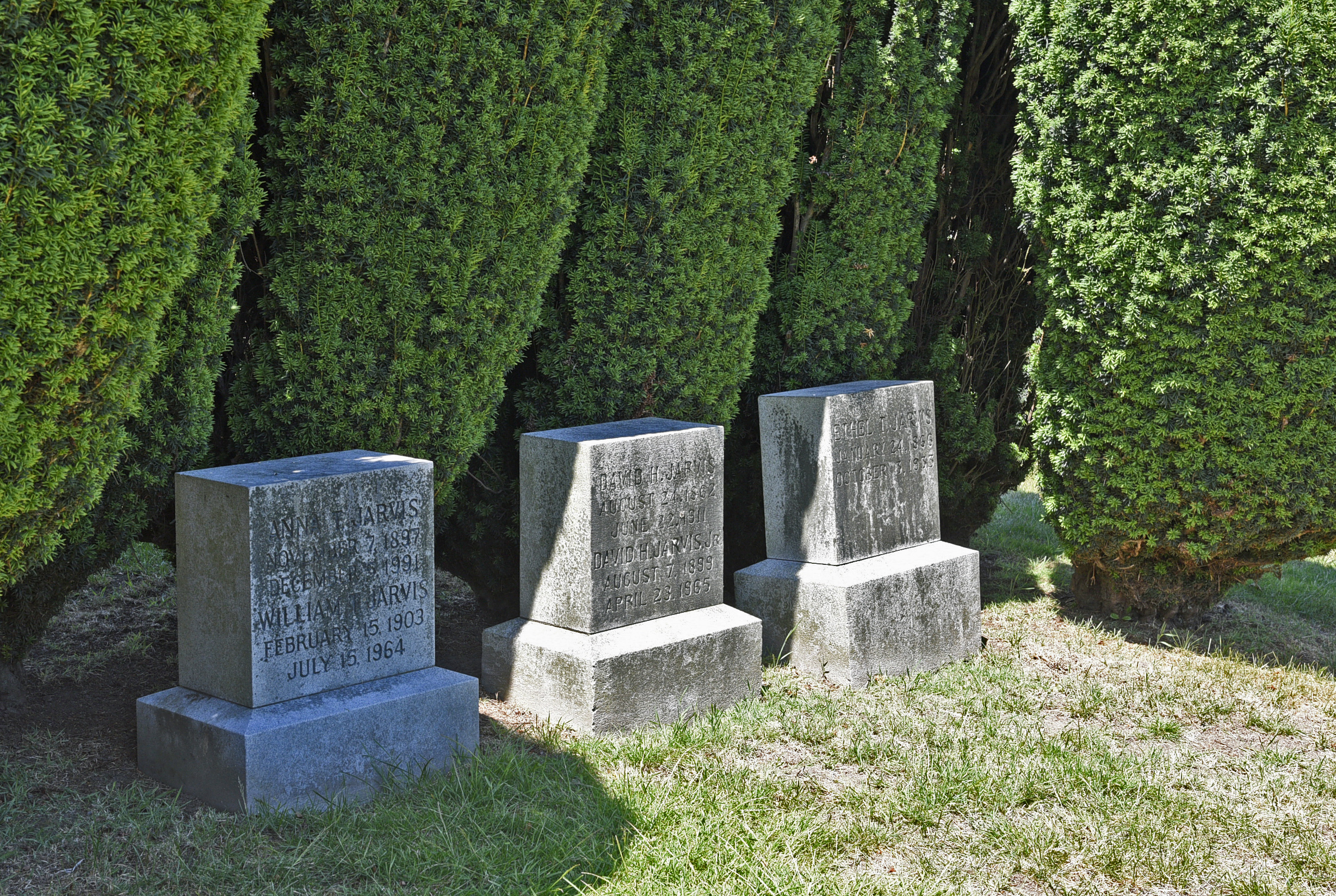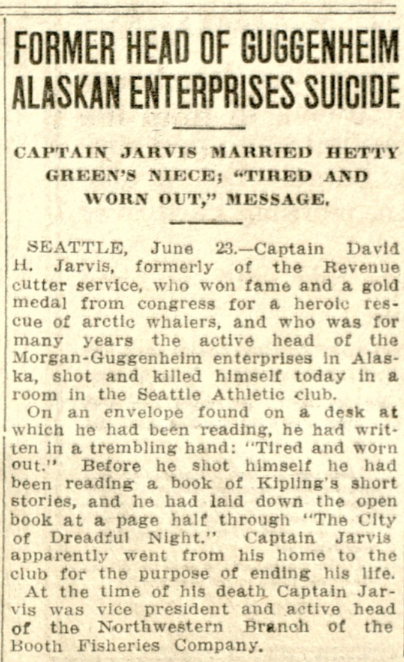Three years later, Jarvis stood by his post as a special government agent at Nome during a smallpox epidemic. In February 1902, he was named collector of customs for the District of Alaska by President Theodore Roosevelt. In 1905, Jarvis resigned from the collectorship and retired as a captain from the revenue cutter service, becoming manager of a Seattle salmon cannery and overseeing the development of the Alaska copper districts and the building of a railroad by a syndicate consisting of the Guggenheim family and J. P. Morgan. President Roosevelt, who had recommended Jarvis for the position with the syndicate, twice offered him the governorship of Alaska.
Jarvis was a close friend and adviser of Judge James Wickersham, who wrote of him in 1901, "I am very fond of Capt. Jarvis; he is a loveable, honest and competent man—I think those three words cover about all that is necessary in a man." When Wickersham ran for delegate to Congress in 1908 on an anti-Guggenheim platform, he broke with Jarvis and accused him of corruption, bribery and other crimes. Jarvis resigned from various offices connected with the syndicate.
Jarvis committed suicide on June 23, 1911, shooting himself in his room at the Seattle Athletic Club, one day after Wickersham demanded a new investigation of him for allegedly defrauding the government on coal contracts. Jarvis' suicide note read, "Tired and worn out." Wickersham, accused by his critics of responsibility for Jarvis' death, commented in his diary, "Poor Jarvis. Until he became the employee of the Guggenheim bunch of Jew thieves he was a man of honor and courage." Captain Ellsworth Bertholf commented, "I lived with him in the same tent, was his comrade in times of hardship and danger... Not many people really knew him, for he was a silent man."
Three years later, Jarvis stood by his post as a special government agent at Nome during a smallpox epidemic. In February 1902, he was named collector of customs for the District of Alaska by President Theodore Roosevelt. In 1905, Jarvis resigned from the collectorship and retired as a captain from the revenue cutter service, becoming manager of a Seattle salmon cannery and overseeing the development of the Alaska copper districts and the building of a railroad by a syndicate consisting of the Guggenheim family and J. P. Morgan. President Roosevelt, who had recommended Jarvis for the position with the syndicate, twice offered him the governorship of Alaska.
Jarvis was a close friend and adviser of Judge James Wickersham, who wrote of him in 1901, "I am very fond of Capt. Jarvis; he is a loveable, honest and competent man—I think those three words cover about all that is necessary in a man." When Wickersham ran for delegate to Congress in 1908 on an anti-Guggenheim platform, he broke with Jarvis and accused him of corruption, bribery and other crimes. Jarvis resigned from various offices connected with the syndicate.
Jarvis committed suicide on June 23, 1911, shooting himself in his room at the Seattle Athletic Club, one day after Wickersham demanded a new investigation of him for allegedly defrauding the government on coal contracts. Jarvis' suicide note read, "Tired and worn out." Wickersham, accused by his critics of responsibility for Jarvis' death, commented in his diary, "Poor Jarvis. Until he became the employee of the Guggenheim bunch of Jew thieves he was a man of honor and courage." Captain Ellsworth Bertholf commented, "I lived with him in the same tent, was his comrade in times of hardship and danger... Not many people really knew him, for he was a silent man."
Family Members
Sponsored by Ancestry
Advertisement
Advertisement





















